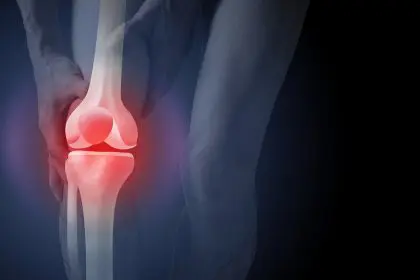Cancer is a daunting diagnosis that affects millions of people worldwide. For those with a family history of cancer, the stakes are even higher. Regular screenings and tests can be life-saving by detecting cancer early when it is most treatable. Here are three crucial tests that men and women with a family history of cancer should consider:
1. Genetic testing for cancer susceptibility
Genetic testing is a powerful tool for understanding your risk of cancer. This test analyzes your DNA to identify mutations that may increase your risk for certain types of cancer. Here’s why it’s important:
Understanding genetic mutations
Certain inherited genetic mutations can significantly raise your risk for cancers such as breast, ovarian, colon, and prostate cancer. The most well-known mutations are BRCA1 and BRCA2, which are linked to breast and ovarian cancer.
Personalized risk assessment
Genetic testing provides a personalized risk assessment, helping you and your health care provider make informed decisions about your health. If you have a family history of cancer, this test can clarify your risk level and guide you on preventive measures.
Preventive strategies
Knowing your genetic risk can lead to proactive steps such as increased surveillance, lifestyle changes, and preventive surgeries. For example, women with BRCA mutations might opt for more frequent mammograms or consider prophylactic mastectomy.
2. Colonoscopy
Colonoscopy is an essential test for detecting colorectal cancer, especially for those with a family history of the disease. This test allows doctors to examine the inner lining of your large intestine for abnormalities.
Early detection
Colonoscopy is highly effective in detecting early-stage colorectal cancer and precancerous polyps. Early detection significantly improves treatment outcomes and survival rates.
Prevention through polyp removal
During a colonoscopy, doctors can remove polyps before they turn into cancer. This preventative measure can reduce your risk of developing colorectal cancer.
Recommended frequency
For individuals with a family history of colorectal cancer, it’s generally recommended to start colonoscopies at an earlier age, typically around 40, or ten years younger than the age at which the youngest affected relative was diagnosed.
3. Mammography and breast MRI
Breast cancer is one of the most common cancers among women, and those with a family history are at higher risk. Mammography and breast MRI are two key tests for early detection.
Mammography
Mammography uses low-dose X-rays to examine breast tissue. It is the standard screening tool for detecting breast cancer. Regular mammograms can detect tumors that are too small to be felt, significantly improving early detection and treatment outcomes.
Breast MRI
For women with a very high risk of breast cancer, such as those with BRCA mutations, a breast MRI might be recommended. MRI is more sensitive than mammography and can detect cancers that mammograms might miss.
Combined screening
Using both mammography and MRI provides a more comprehensive screening approach for high-risk women. This combined strategy can improve the chances of detecting cancer early.
Conclusion
For men and women with a family history of cancer, proactive health management is crucial. Understanding your genetic predisposition through genetic testing can reveal inherited mutations that significantly increase your risk for certain cancers, such as breast, ovarian, colon, and prostate cancer. By identifying these mutations early, you can work with your health care provider to create a tailored prevention and monitoring plan, which may include more frequent screenings, lifestyle adjustments, and even preventive surgeries.
Colonoscopy plays a vital role in detecting colorectal cancer at an early stage, when treatment is most effective. It also allows for the removal of precancerous polyps, thereby preventing cancer development altogether. Given the heightened risk, those with a family history of colorectal cancer should begin screenings earlier than the general population.
For women at high risk of breast cancer, combining mammography and breast MRI provides the most comprehensive approach to early detection. Mammograms can identify small tumors that cannot be felt, while breast MRIs offer enhanced sensitivity for detecting cancers that might be missed by mammography alone.
Regularly consulting with your health care provider ensures that your screening plan is up-to-date and appropriate for your risk level. Early detection and timely intervention are your best defenses against cancer, offering the greatest chance for successful treatment and improved survival rates. Taking these proactive steps can empower you to manage your health effectively and reduce your cancer risk significantly.
This story was created using AI technology.

















